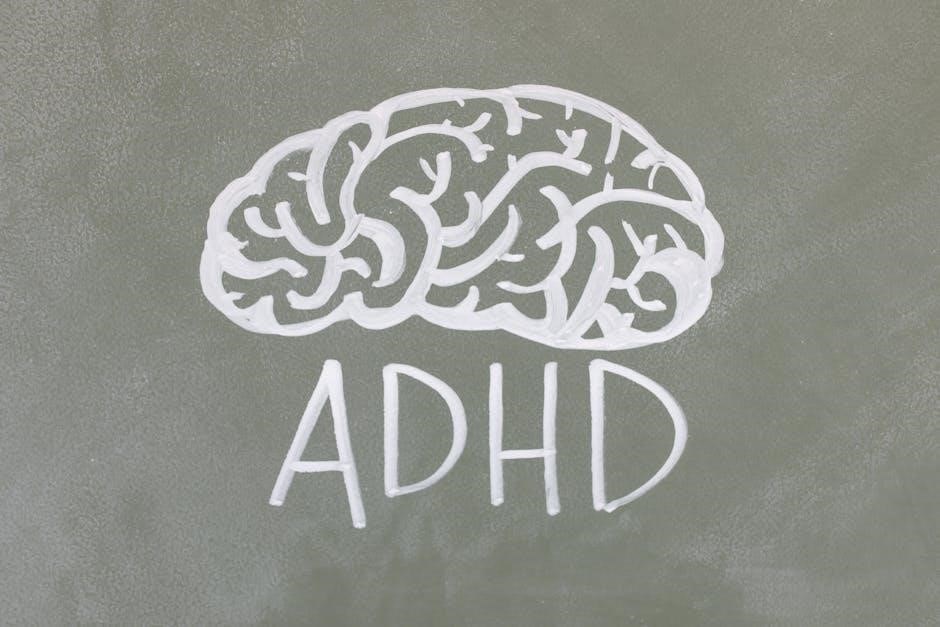Dialectical Behavior Therapy (DBT) is a powerful, evidence-based approach developed by Marsha Linehan to help manage emotions, behaviors, and relationships. This workbook provides practical exercises for mindfulness, distress tolerance, and emotional regulation, offering tools to improve mental health and well-being through structured techniques.
Overview of DBT and Its Benefits

Dialectical Behavior Therapy (DBT) is an evidence-based approach that combines cognitive-behavioral techniques with mindfulness practices to help individuals manage intense emotions, improve relationships, and reduce self-destructive behaviors. The DBT workbook serves as a practical guide, offering exercises and strategies to develop four core skills: mindfulness, distress tolerance, emotion regulation, and interpersonal effectiveness. These skills empower individuals to navigate life challenges more effectively, leading to improved mental health and overall well-being. The workbook is particularly beneficial for those struggling with emotional dysregulation, providing structured tools to enhance resilience and emotional stability. By focusing on both acceptance and change, DBT fosters a balanced approach to personal growth, making it a valuable resource for individuals seeking to manage their emotions and behaviors more effectively.
Structure and Purpose of the DBT Workbook

The DBT workbook is designed to guide individuals through the four core modules of Dialectical Behavior Therapy: mindfulness, distress tolerance, emotion regulation, and interpersonal effectiveness. Each section provides practical exercises, worksheets, and handouts to help users develop these skills. The workbook is structured to be user-friendly, with clear instructions and real-life applications, making it accessible for both individuals and therapists. Its primary purpose is to offer a comprehensive tool for learning and practicing DBT techniques, enabling individuals to manage emotional challenges, improve communication, and enhance their quality of life. The structured format ensures a progressive learning experience, allowing users to build upon previously learned skills and integrate them into daily life effectively.

Core Modules of DBT
The four core modules of DBT—mindfulness, distress tolerance, emotion regulation, and interpersonal effectiveness—provide practical skills to manage emotions, cope with stress, and improve relationships and communication effectively.
Mindfulness: Techniques for Staying Present
Mindfulness is a cornerstone of DBT, focusing on the practice of being fully present and engaged in the current moment. Techniques such as deep breathing, meditation, and nonjudgmental observation help individuals cultivate awareness and reduce emotional reactivity. By staying grounded in the present, individuals can better navigate challenging emotions and situations without becoming overwhelmed. The workbook provides exercises like mindful breathing and body scans to enhance focus and reduce distractions. These practices encourage individuals to observe their thoughts and feelings without attachment, fostering a sense of calm and clarity. Regular mindfulness practice can lead to improved emotional regulation and a greater sense of control over one’s responses to life’s challenges.


Distress Tolerance: Coping with Difficult Emotions
Distress tolerance teaches individuals how to manage overwhelming emotions and situations without escalating them. Techniques like radical acceptance and distraction help reduce emotional intensity. The workbook offers exercises to build resilience, such as deep breathing, physical activity, and mindfulness to stay grounded during crises. These strategies enable individuals to tolerate pain without resorting to harmful behaviors. By practicing distress tolerance, one can learn to accept difficult moments temporarily and respond more effectively. The workbook emphasizes building coping skills to improve emotional regulation and overall quality of life, ensuring individuals can navigate challenges with greater stability and confidence.
Emotion Regulation: Managing Emotional Responses
Emotion regulation focuses on understanding and controlling emotional reactions to reduce intensity and duration. The workbook provides exercises to identify triggers, label emotions accurately, and deploy strategies to manage feelings constructively. Techniques include mindfulness, self-soothing, and cognitive restructuring to prevent emotional overwhelm. By practicing these skills, individuals can respond to situations more thoughtfully rather than react impulsively, leading to improved emotional balance and relationships. The workbook emphasizes awareness and acceptance of emotions while offering practical tools to modulate responses, fostering long-term emotional well-being and resilience in daily life.
Interpersonal Effectiveness: Improving Communication Skills
Interpersonal effectiveness focuses on enhancing communication skills to maintain relationships and achieve personal goals. The workbook teaches strategies like GIVE (be gentle, act interested, validate, use an easy manner) and FAST (be fair, apologize, stick to values, thank) to navigate conflicts and express needs respectfully. Techniques such as DEAR MAN (describe, express, assert, reinforce, mindfully stay, appear confident, negotiate) help individuals assert themselves effectively while maintaining respect. These tools enable better boundary-setting, active listening, and problem-solving in interpersonal situations. By practicing these skills, individuals can build stronger, more fulfilling relationships and communicate more confidently, balancing their needs with others’ feelings. The workbook provides exercises to apply these strategies in real-life scenarios, fostering healthier interactions and reducing misunderstandings.

Advanced DBT Techniques
Advanced DBT techniques include cognitive-behavioral strategies and dialectical approaches to manage intense emotions and behaviors. These methods enhance self-awareness, emotional resilience, and long-term personal growth.
Dialectical Strategies: Balancing Acceptance and Change
Dialectical strategies in DBT focus on balancing acceptance and change, helping individuals manage conflicting emotions and thoughts. These techniques, such as radical acceptance and behavioral activation, encourage acknowledging the present while working toward positive change. By integrating acceptance-based practices with change-oriented strategies, individuals can reduce emotional suffering and improve their quality of life. The workbook provides exercises to practice these skills, fostering a healthier relationship with oneself and others. This balance is central to DBT, enabling individuals to navigate life’s challenges with greater resilience and emotional awareness.
Cognitive-Behavioral Techniques for Thought Patterns
Cognitive-behavioral techniques in DBT help individuals identify and change negative thought patterns that contribute to emotional distress. These strategies, rooted in cognitive-behavioral therapy (CBT), teach clients to challenge unhelpful beliefs and replace them with more balanced, constructive ones. Exercises such as cognitive restructuring and behavioral activation are included in the workbook to promote rational thinking and reduce emotional intensity. By addressing thought patterns, individuals can better manage emotions and behaviors, leading to improved mental health outcomes. The workbook provides practical tools and worksheets to practice these skills, empowering users to develop healthier ways of thinking and responding to challenging situations. These techniques are integral to DBT, offering a structured approach to overcoming negative thought cycles and fostering emotional resilience.
Accessing the DBT Workbook in PDF Format
The DBT workbook in PDF format is widely available through popular mental health resources and official publishers, offering convenient access to practical exercises and worksheets for skill development.

Popular Resources for Downloading the Workbook
The Dialectical Behavior Therapy Skills Workbook is readily available in PDF format through various reputable sources. Official publishers like Marsha Linehan’s website offer licensed downloads for personal or clinical use. Additionally, platforms such as LitRes and online mental health forums provide access to eBooks and free PDF versions of the workbook. Many websites specialize in mental health resources, offering downloadable worksheets and handouts that align with DBT principles. Some popular options include Mindful Mind and Body and Between Sessions, which feature extensive collections of DBT materials. These resources are designed to be user-friendly, ensuring easy access to practical exercises for mindfulness, emotion regulation, and distress tolerance. Whether you’re a therapist or an individual seeking self-help tools, these platforms make it convenient to explore and benefit from DBT techniques;

The Dialectical Behavior Therapy Workbook offers invaluable tools for managing emotions and improving mental well-being. Its practical exercises and accessible PDF format make it a convenient resource for personal growth.
The Dialectical Behavior Therapy Workbook is a comprehensive guide offering practical exercises to master DBT skills like mindfulness, distress tolerance, and emotion regulation. Its structured approach empowers individuals to manage emotions, improve relationships, and build resilience. Available in PDF format, the workbook is easily accessible, making it a valuable resource for both therapists and individuals seeking self-help. The inclusion of worksheets and handouts enhances its utility, allowing users to apply DBT techniques effectively in daily life. By focusing on evidence-based strategies, this workbook equips readers with tools to navigate challenging emotions and situations, fostering long-term mental well-being and personal growth.